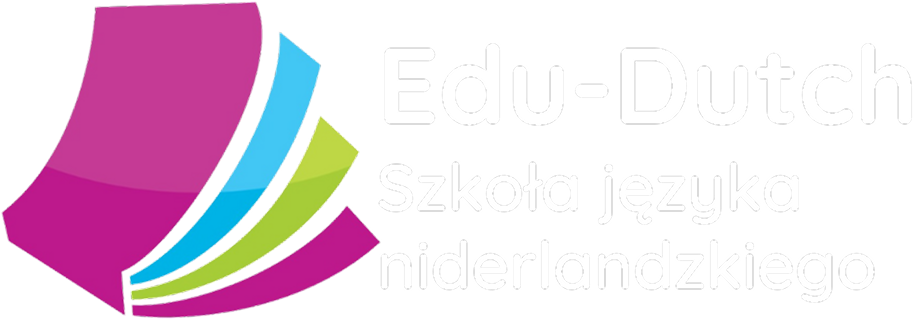
You often ask us how to learn Dutch effectively.
Many people look for a “golden rule” – a way to master the language quickly and easily. Unfortunately, there’s no magic formula that guarantees instant results. Learning a foreign language is a process that requires time, patience, and consistency.
That said, there are strategies that can make mastering Dutch much easier and more effective. Here are a few tips worth keeping in mind – and worth coming back to whenever your motivation starts to fade.
Table of contents
Define your goals in learning Dutch
Setting goals is key in the language-learning process. Without a clear goal, it’s hard to stay motivated, and your progress may feel less visible. Before you start learning Dutch (or any language), it’s important to ask yourself why you want to learn it and what you want to achieve. Do you need Dutch for work, or are you learning it for your own enjoyment?
Defining your goals will help you focus on the aspects of the language that matter most to you right now. What’s more, having a clear goal will motivate you to keep going.
For example, if grammar isn’t a problem for you but you often lack vocabulary, you might set a goal for the coming week: learn 5 new words a day. That’s 35 new words in a week and as many as 140 in a month! So why not set your first goal today?
Use different resources to learn Dutch
There are many ways to learn a language: classroom or online courses, apps, films, books, songs, and more. It’s worth experimenting with different resources and choosing the ones that suit your preferences best. This way you’ll avoid monotony and make learning Dutch enjoyable.
Many of these methods are free and available online, which means you can study anywhere, anytime.
👉 Check us out on Instagram, Facebook, TikTok, or YouTube – we regularly share free materials that will make your Dutch learning journey even more fun and rewarding!
📺 YouTube: Edu-Dutch
📘 Facebook: EduDutch
📸 Instagram: @edudutch
🎵 TikTok: @edudutch
Practice Dutch Regularly
Every personal trainer and language teacher will tell you the same thing: regular practice and sticking to a plan are the keys to visible progress. That’s why it’s important to set up a study schedule and follow it consistently. Daily vocabulary revision, 30 minutes of grammar practice, or reading a few pages of a book in Dutch are just a few effective examples. Plan your week so you know exactly what to do each day. Regular practice will help you retain what you’ve learned and gradually build on it.
In our Dutch courses, you’ll quickly see that learning is not just about attending lessons, but also about independent work outside them. Doing homework is essential to consolidate and expand your language skills.
Try to Speak Dutch
Speaking the language you’re learning is crucial. It helps you practice communication, improve intonation, and refine pronunciation. You can speak with friends, colleagues, or acquaintances – the key is not to be afraid of mistakes. Focus on progress, not perfection. At first it may feel difficult, but over time your confidence will grow.
It’s also helpful to record yourself during conversations or exercises. Listening back will help you spot areas for improvement. And if you don’t have many opportunities to speak, try talking to a mirror! I used to do this myself – it may seem strange at first, but it really helps. Good luck!
Learn in Context
Learning vocabulary and grammar in context makes memorization faster and easier. Try reading books or articles, listening to podcasts in Dutch, or watching films and TV shows. The goal isn’t to understand everything right away, but to start recognizing familiar words and grasping the overall meaning.
Context allows you to absorb the language naturally, while also making the process more enjoyable. It’s also a great way to improve your listening, reading comprehension, and cultural knowledge. We always advise our students to learn vocabulary in connection with a specific situation or image – it sticks much better that way.
Be Patient
Someone once told me: “Learning a foreign language is not a sprint, it’s a marathon.” And it’s true. It takes time and patience, but if you practice regularly and keep working, you will see results. A marathon proves that the human body and mind can achieve incredible things with perseverance – and language learning is no different.
Don’t expect instant results. Celebrate every small step forward. Progress may be slow and gradual, but the key is not to get discouraged and to keep your goal in sight. Patience leads to long-term success.
Learn Dutch with Joy
Learning a language doesn’t have to be boring or difficult. Try finding ways to make it enjoyable – listen to your favorite music, watch movies in Dutch, or find a conversation partner you actually enjoy talking with. You can also combine learning with hobbies – for example, practicing Dutch while cooking dishes from the Netherlands.
Creativity and enjoyment help you stay motivated and discover new ways of learning. Personally, Dutch soap operas taught me how to react and communicate in everyday situations!
Final Thoughts
Learning a language is a process that takes time, patience, consistency, and perseverance. Defining goals, using different resources, practicing regularly, speaking and listening, learning in context, and enjoying the process are the key elements that will bring you results.
Don’t be afraid of mistakes – they’re a natural part of learning. Even small steps count, and each one brings you closer to confidence in speaking, reading, and writing Dutch.
Good luck with your Dutch studies – I know you can do it! 💪
— Kinga


